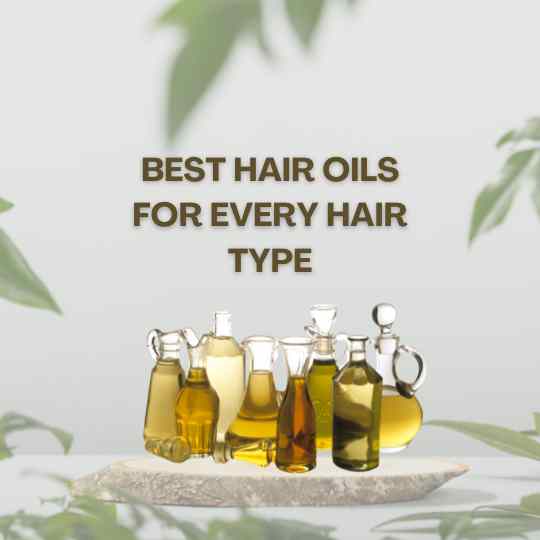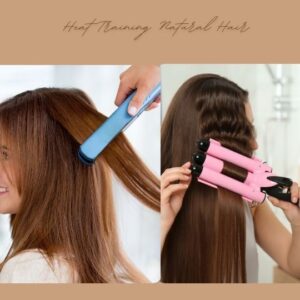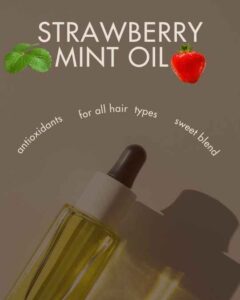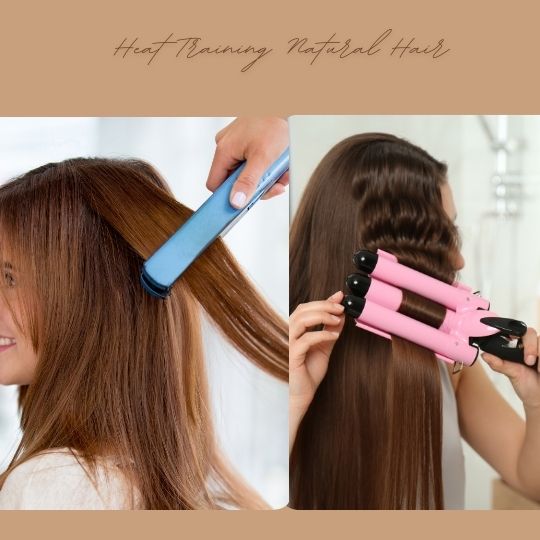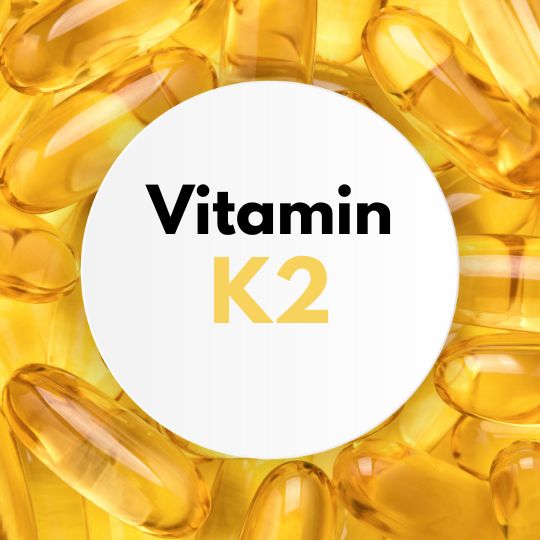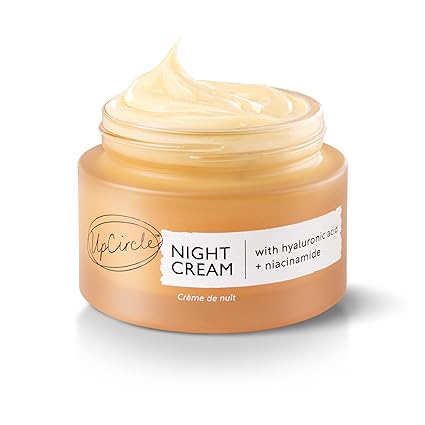There’s a popular misconception that heavy oils, such as olive or castor oil, can prevent hair from “breathing.” Hair oils have been essential in hair care routines for centuries. From olive oil to castor oil, coconut oil to argan oil, there’s no shortage of options to nourish your locks. Let’s clear up the Hair Really “Breathe” myth while exploring the best oils for different hair needs, including dry, frizzy, and damaged hair.
Can Hair Really “Breathe”?
The fact that hair needs to breathe is completely a myth. Hair and nails are fashioned from keratin, which does not have cells and, therefore, does not need oxygen. What people understand as ‘breathing’ is that hair should not be allowed to accumulate a lot of dirt and this is what heavy oils do at times. Oils do not smother hair but if the hair is not rinsed properly then the oil will build up and drag the hair down.
The scalp is skin and it is, indeed, a parasitic tissue that needs a proper supply of blood, and oxygen, among other things, and this is supplied wh anytime the blood vessels are opened to allow this important organ to breathe. It is good to note that a healthy scalp presents healthy skin and hair follicles thus promoting healthy hair.
As much as oils act as sealants for moisture in the hair, products such as olive oil may not be as helpful once used in excess. It can block natural scalp aeration and potentially lead to microbial growth. Overuse of heavy oils can cause issues like reduced cell turnover. It is important for healthy skin and scalp. This can lead to problems such as fungal infections and buildup on the scalp.
Heavy oils, medium oils, and light oils
Each type of oil has different properties, and the best one for you depends on your hair type and needs. Let’s break it down:
Heavy Oils
Heavy oils are thick and tend to provide deep moisture and nourishment. These oils are perfect for those with thick, dry, curly, or natural hair as they help to seal in moisture and prevent breakage.
- Castor Oil
- Olive Oil
- Avocado Oil
These Heavy Oils work best when applied as a hair mask or for hot oil treatments, and they should be used sparingly if you have fine or straight hair, as they can weigh the hair down.
Medium Oils
Medium oils strike a balance between heavy and light oils, offering moisture without being overly greasy. They’re suitable for most hair types and can provide both nourishment and shine without leaving a heavy residue.
- coconut oil
- Argan Oil
- Jojoba Oil
Medium oils are perfect for daily use or as leave-in conditioners. They provide moisture and protection without being too heavy, making them ideal for most hair types.
Light Oils
Light oils are ideal for people with fine, thin, or straight hair. These oils provide a boost of moisture and shine without weighing the hair down, making them perfect for everyday use.
- Grapeseed Oil
- Sweet Almond Oil
- Rosemary Oil
- Aroma Oils for Hair Growth
These are oils that are mixed with other less potent oils such as jojoba oil or grapeseed oil. It is well flavored and light in nature and also improves the scalp for new hair regrowth without making the hair oily like coconut oil.
How to Choose the Right Oil for Your Hair Type
- For Thick Hair: Heavy oils like castor or olive oil are best, as they provide intense hydration and lock in moisture.
- For Fine or Straight Hair: Light oils such as jojoba or grapeseed offer moisture and shine without weighing the hair down.
- For Curly or Natural Hair: Medium to heavy oils, like argan, avocado, or coconut oil, help define curls and prevent frizz while maintaining hydration.
- For Dry or Damaged Hair: Heavy and medium oils such as avocado and argan oil help repair and nourish the hair. Using oils like castor oil in moderation can also strengthen damaged hair.
Best Oils for Different Hair Types
There’s no one-size-fits-all when it comes to hair oils. Your hair type determines the right oil for you. Let’s break it down:
- Best Hair Oils for Dry Hair: Dry hair needs moisture and nourishment. Oils like olive oil, coconut oil, and avocado oil are rich in fatty acids, which seal in moisture and prevent dryness. These oils penetrate the hair shaft deeply, offering hydration from within.
- Best Hair Oil for Damaged Hair: Damaged hair benefits from restorative oils like argan oil and castor oil. Argan oil is packed with antioxidants, while castor oil is known for its strengthening properties. Together, these oils help repair and nourish the hair, preventing further breakage.
- Hair Oil for Frizzy Hair: Frizzy hair needs smoothing oils to tame flyaways. The best oil for frizzy hair is jojoba oil, as it mimics the natural oils produced by your scalp. Sweet almond oil and argan oil are also great options, providing frizz control without weighing hair down.
- Best Hair Growth Oil: If you’re looking to stimulate hair growth, castor oil and rosemary oil are top contenders. Castor oil is famous for its role in promoting thicker hair, while rosemary oil is known to boost circulation to the hair follicle, encouraging growth. Essential oils for hair growth, such as peppermint and tea tree, can be mixed with a carrier oil like jojoba or olive oil for added benefits.
- Best Hair Oil for Fine Hair: Fine hair needs mild oils that are not greasy on the hair as this is true for all hair types. The best hair oil for fine hair includes argan oil and jojoba oil, which offer moisture without the greasy feel. Fine hair requires mild oils that are not greasy on the hair as this is true for all hair types.
Best Oils for Specific Hair Needs
- Best Hair Oil for Colored Hair: Argan and coconut oil are preferable for color-treated hair because they’re light and don’t weigh hair down. If you’ve ever asked, “Is coconut oil good for your color-treated hair?” the answer is yes! It helps prevent protein loss and protects against fading.
- Best Oil for Natural African American Hair: For natural hair, oils like castor oil, olive oil, and avocado oil provide deep moisture and enhance curls. The best oil for mixed-race hair includes argan oil, which helps define curls without weighing them down.
- Hair Oil for Dry Ends: The best oil for dry ends is sweet almond oil or jojoba oil. These oils nourish the ends and prevent them from splitting.
- Best Oil for Hair Growth and Thickness: Oils that promote hair growth and thickness include castor oil and jojoba oil. Mixing them creates a powerhouse combination that strengthens the hair from root to tip. Carrier oils for hair growth and thickness like grapeseed oil or avocado oil work well as a base for essential oils.
- Lightweight Oils for Hair: If you have fine or straight hair, lightweight oils like argan oil, jojoba oil, and grapeseed oil are perfect. These oils won’t leave your hair feeling greasy or weighed down, making them great for daily use.
Final Thoughts: Oils That Penetrate the Hair
One common question is, “What oils are good for your hair, and which oils penetrate the hair?” Oils like coconut oil and olive oil can penetrate the hair shaft. It provides deep moisture for hair and scalp. However, oils like jojoba and argan oil primarily sit on the surface, sealing in moisture but not deeply penetrating the hair.
Uncovering what hair oil to use and when for your particular hair type is one of the biggest makeovers you can do for hair. In moisturizing, frizz management, or hair growth, these oils are effective only when correctly used on the hair.

